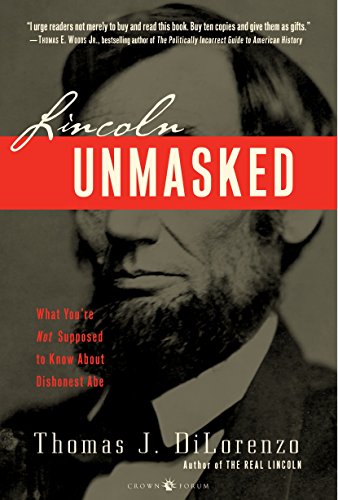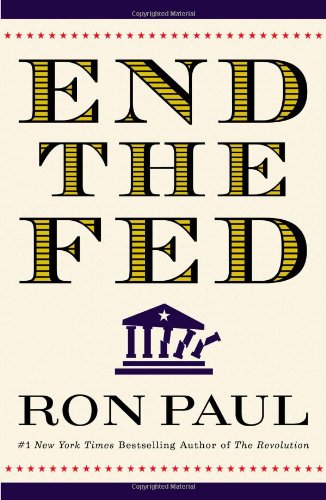The thousands of mortgage defaults and foreclosures in the "subprime" housing market (i.e., mortgage holders with poor credit ratings) is the direct result of thirty years of government policy that has forced banks to make bad loans to un-creditworthy borrowers. The policy in question is the 1977 Community Reinvestment Act (CRA), which compels banks to make loans to low-income borrowers and in what the supporters of the Act call "communities of color" that they might not otherwise make based on purely economic criteria.
The original lobbyists for the CRA were the hardcore leftists who supported the Carter administration and were often rewarded for their support with government grants and programs like the CRA that they benefited from. These included various "neighborhood organizations," as they like to call themselves, such as "ACORN" (Association of Community Organizations for Reform Now). These organizations claim that over $1 trillion in CRA loans have been made, although no one seems to know the magnitude with much certainty. A U.S. Senate Banking Committee staffer told me about ten years ago that at least $100 billion in such loans had been made in the first twenty years of the Act.
 Lincoln Unmasked: What...
Best Price: $5.95
Buy New $9.85
(as of 07:10 UTC - Details)
Lincoln Unmasked: What...
Best Price: $5.95
Buy New $9.85
(as of 07:10 UTC - Details)
So-called "community groups" like ACORN benefit themselves from the CRA through a process that sounds like legalized extortion. The CRA is enforced by four federal government bureaucracies: the Fed, the Comptroller of the Currency, the Office of Thrift Supervision, and the Federal Deposit Insurance Corporation. The law is set up so that any bank merger, branch expansion, or new branch creation can be postponed or prohibited by any of these four bureaucracies if a CRA "protest" is issued by a "community group." This can cost banks great sums of money, and the "community groups" understand this perfectly well. It is their leverage. They use this leverage to get the banks to give them millions of dollars as well as promising to make a certain amount of bad loans in their communities.
 The Real Lincoln: A Ne...
Best Price: $4.25
Buy New $7.48
(as of 07:05 UTC - Details)
The Real Lincoln: A Ne...
Best Price: $4.25
Buy New $7.48
(as of 07:05 UTC - Details)
A man named Bruce Marks became quite notorious during the last decade for pressuring banks to earmark literally billions of dollars to his organization, the "Neighborhood Assistance Corporation of America." He once boasted to the New York Times that he had "won" loan commitments totaling $3.8 billion from Bank of America, First Union Corporation, and the Fleet Financial Group. And that is just one "community group" operating in one city — Boston.
Banks have been placed in a Catch 22 situation by the CRA: If they comply, they know they will have to suffer from more loan defaults. If they don’t comply, they face financial penalties and, worse yet, their business plans for mergers, branch expansions, etc. can be blocked by CRA protesters, which can cost a large corporation like Bank of America billions of dollars. Like most businesses, they have largely buckled under and have surrendered to their bureaucratic masters.
Consequently, banks in every community in America have been forced to hold a portfolio of bad loans, euphemistically referred to as "subprime" loans. In order to compensate themselves for the added risk of extending these loans, many lenders have increased the lending fees associated with mortgage loans. This is simply an indirect way of doing what banks always do — and what they must do to remain solvent: charging effectively higher rates of interest on riskier loans.
But this is discriminatory!, complained the "community organizations." Thus, if one browses the ACORN web site, one can read of their boasts of having "predatory lending laws" passed in numerous states which outlaw such fees, prohibiting banks from protecting themselves from the added risk involved in making forced loans to "subprime" borrowers.
 End the Fed
Best Price: $1.12
Buy New $8.53
(as of 10:10 UTC - Details)
End the Fed
Best Price: $1.12
Buy New $8.53
(as of 10:10 UTC - Details)
These are price control laws, and price controls always cause shortages. Normally, banks would respond to such laws by extending fewer riskier loans. But in this case the banks are forced to continue making the marginal loans by their bureaucratic masters at the Fed and the other three federal bureaucracies mentioned above. So-called predatory lending laws therefore force the banks to "eat" the losses. This is undoubtedly a contributing factor to the bankruptcy of dozens of mortgage lenders over the past year.
 Meltdown: A Free-Marke...
Best Price: $0.25
Buy New $20.00
(as of 02:20 UTC - Details)
Meltdown: A Free-Marke...
Best Price: $0.25
Buy New $20.00
(as of 02:20 UTC - Details)
Then of course there is the issue of the Fed’s monetary policy having created the housing bubble, characterized by a spectacular escalation of real estate values in every American city over the past decade or so. This created a further problem for the financial institutions that are victimized by the CRA. They are forced to make a certain amount of bad loans, but because of the Fed-created explosion in housing prices, many thousands of subprime borrowers no longer qualified, by a long stretch, for conventional mortgages based on their incomes.
The only way these borrowers could qualify for their mortgage loans (even ignoring their bad credit ratings) was to take out adjustable rate mortgages, some of which had astonishingly low first-year rates in the 3 percent range, and sometimes lower. This is what has largely fueled the subprime mortgage meltdown — the inability of thousands of subprime borrowers to afford their mortgages now that their rates have adjusted upward. Thus, the combination of the Fed’s enforcement of the CRA (with the help of political pressure groups like ACORN) and its post 9/11 monetary policy in general are the reasons for the bursting real estate bubble and the "subprime" mortgage meltdown.
Don’t expect to read about this in the "mainstream media," however, which generally views groups like ACORN as heroic champions of the poor, laws like the CRA as anti-discrimination laws, and places all of the blame for the subprime mortgage meltdown on greedy capitalists, especially mortgage brokers. Encouraged by such reporting, the odious Senator Charles Schumer of New York has promised federal legislation that will reign in these miscreants, while the Bush administration is proposing an indirect bank bailout by having the Federal Housing Administration cover many of the bad "subprime" loans. This will create what economists call a "moral hazard" by encouraging even more bad loans to be extended in the future. Every banker in America will be glad to extend loans (at high rates of interest) to the most uncreditworthy borrowers if he thinks there is no possibility of default with the FHA effectively guaranteeing the loan.





